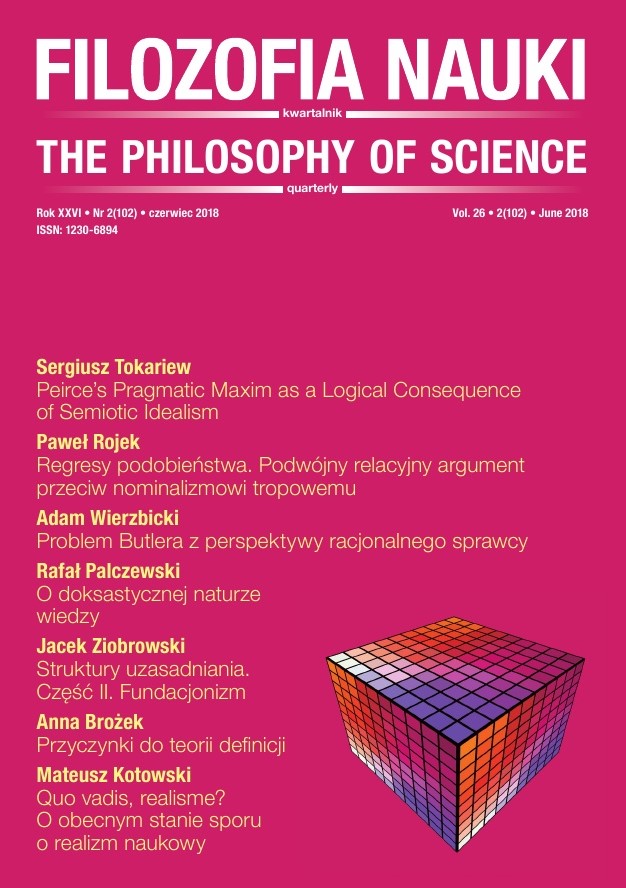O doksastycznej naturze wiedzy
On the Doxastic Nature of Knowledge
Author(s): Rafał PalczewskiSubject(s): Philosophical Traditions, Social Philosophy, Special Branches of Philosophy
Published by: Uniwersytet Warszawski - Wydział Filozofii i Socjologii, Instytut Filozofii
Keywords: knowledge; belief; JTB; propositional attitude; disposition; thinness; Bogusławski; Radford;
Summary/Abstract: The paper is devoted to the doxastic nature of knowledge, represented in the traditional epistemology by the belief condition (part of the so-called JTB definition of knowledge) that one can only know what one believes. The article is divided into four parts, in which various arguments against the doxastic nature of knowledge are discussed and rejected. The first part starts with general linguistic and pragmatic reflections on the relation between knowledge and belief, and ends with a discussion of some problematic epistemic-doxastic conjunctions and implications. The second part deals with linguistic problems related to the difference between epistemic and doxastic attributions, e.g., in erotetic and evaluation contexts. The third part is concerned with the accuracy of thought experiments, i.e., descriptions of possible situations in which a person knows but does not believe. The fourth part focuses mainly on doxastic ambiguity (e.g., dispositional vs. occurrent belief, thin vs. thick belief), context sensitivity, and vagueness, including the notions of half-belief and in-between belief. The conclusion is that the belief condition is well-founded, but it should take a more precise form: one can know what one dispositionally and thinly believes.
Journal: Filozofia Nauki
- Issue Year: 26/2018
- Issue No: 2 (102)
- Page Range: 55-94
- Page Count: 40
- Language: Polish

